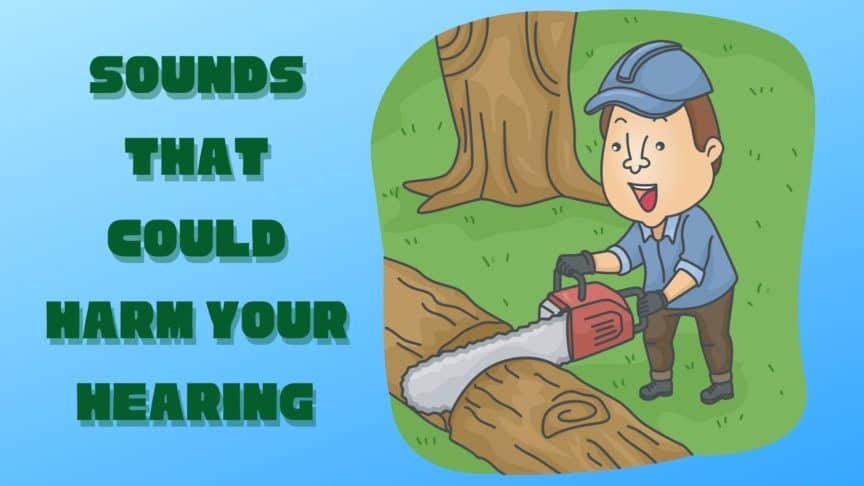It’s a noisy world out there. Even if you don’t live in a noisy neighborhood or working environment you may be surprised at all the noise you come into contact with every day. If you believe that a little noise can’t hurt you, nothing could be further from the truth. When noise becomes loud enough it can induce hearing loss that leaves you with irreversible damage. It’s important to understand when, where and why noises around you can damage your hearing so you can make educated choices as to how to avoid them.
Dangerous Decibels
It is estimated that 17% or 26 million adults aged 20–69 years have suffered permanent hearing damage due to excessive exposure to noise. Sound is measured in decibels and when the decibel level exceeds 85 decibels, hearing loss can begin. It’s not just the level of sound but the length of exposure. Being exposed to 85 decibels for eight hours or more may cause significant hearing damage over a decade, but a louder exposure due to an explosion could cause damage in a couple of seconds.
Noise-Induced Hearing Loss
You hear using tiny hair-like cells in the inner ear, called stereocilia which transform soundwaves into electrical signals and send them to your brain to be processed. Your brain not only processes speech, but the proximity, direction and approaching speed of a sound. When noise passes a safe threshold, stereocilia begin to endure irreversible damage or destruction, leaving behind permanent hearing loss. While hearing loss might not seem like a big deal, its effects on communication and lack of awareness in space can cause chronic depression, isolation, brain fatigue, cognitive decline, increased risk of falls and a higher likelihood of developing dementia.
The Danger of A Crowd
The sounds which are damaging your hearing may surprise you. If you live in a city or work around a lot of machinery you may not even notice the danger around you every day. To put things in perspective, complete silence is hard to find today but that measures at 0 dB. A whisper measures on average 30 dB and normal conversation measures 60 dB. As more people talk in a crowded space the decibels begin to compound. In a crowded office setting, it is easy for the decibel level to consistently reach over 85 decibels without even noticing it. A good rule of thumb is, if you have to shout to hear over the noise then your hearing is at risk.
City Sounds
If you live in the city then there are many sounds that you encounter daily that can put your hearing at risk. However, if you think you live in a quieter place, even your daily commute can create loud levels of noise. City traffic measures at 80dB and a motorcycle can equal 100dB. Add passing by a construction zone and you have the perfect storm for hearing damage.
Household Dangers
It makes sense that the closer you are to the source of noise the more damage it can do. To pass a loud vehicle or construction site should not create too much damage but if you ride the motorcycle or work in the construction zone ear protection must be considered and worn correctly to ensure you are protecting your ears. However, some of our daily practices can easily reach a dangerous noise threshold without us even noticing. Hairdryers, blenders, vacuum cleaners and home lawnmowers can all reach 90dB easily. Running multiple machines in your home at once can increase the decibels quickly.
Recreational Activities That Can Damage your Hearing
Attending your favorite concert, sporting event or nightclub can expose your hearing to extreme damage. If your ears are ringing after a loud or crowded event, it is almost certain that hearing damage is present. One of the most insidious risks to your hearing headphones and earbuds, which fit in or next to your ear canal sending audio media directly to your ears. These devices can reach 110 decibels which have the potential to damage your hearing in just under two minutes. Make sure to give your ears listening breaks and keep the volume at no more than 60% of its potential volume.
Protecting Hearing Health
Wearing hearing protection is key to protecting your hearing in the places you visit with extreme noise exposure. Don’t let the effects of hearing loss affect the quality of your life permanently. If you do have hearing loss, the good news is that there is hope. Make an appointment to have your hearing checked today, and discover your options, to help you hear clearly again.

